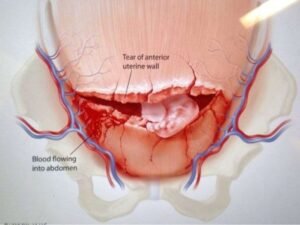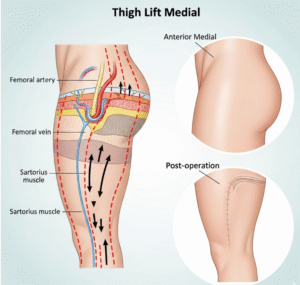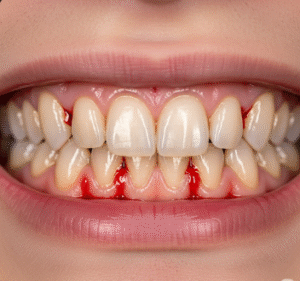Overview
Executive dysfunction refers to impairments in the brain’s executive functions, which are the cognitive processes responsible for planning, decision-making, problem-solving, organization, and impulse control. Individuals with executive dysfunction often experience difficulty managing daily tasks, regulating behavior, and achieving long-term goals. This condition can occur in neurological disorders, psychiatric conditions, or as a result of brain injury. In Korea, neurology, psychiatry, and cognitive rehabilitation clinics offer comprehensive evaluation and treatment options to help individuals improve executive functioning and overall quality of life.
Highlights:
➤ Difficulty with planning and organizing tasks – Daily activities may become challenging
➤ Problems with impulse control and decision-making – Can affect work, school, and relationships
➤ Occurs in neurological and psychiatric conditions – Including ADHD, traumatic brain injury, and dementia
Key Facts
➤ Prevalence: Executive dysfunction is common in individuals with ADHD, frontal lobe injuries, stroke, or neurodegenerative disorders.
➤ Age affected: Can appear at any age, depending on the underlying cause, but is often identified in childhood or following brain injury.
➤ Gender: Affects both males and females.
➤ Impact: May lead to difficulty in academic or occupational settings, impaired social functioning, and reduced independence.
What is Executive Dysfunction?
Executive dysfunction is a cognitive impairment affecting the brain’s frontal lobes, which are critical for executive functions. Key characteristics include:
- Planning difficulties: Challenges in organizing steps to complete a task
- Poor time management: Trouble estimating or allocating time effectively
- Impulse control issues: Acting without considering consequences
- Working memory deficits: Difficulty holding and manipulating information mentally
- Problem-solving challenges: Trouble analyzing situations and generating solutions
Highlights:
➤ Impairs daily functioning and decision-making
➤ Can coexist with ADHD, depression, or neurological disorders
➤ May be subtle or severe, affecting multiple areas of life
What Symptoms Are Related to Executive Dysfunction?
➤ Difficulty starting or completing tasks – Often appears disorganized or forgetful
➤ Poor planning or prioritization – Struggles to sequence steps or allocate resources
➤ Impulsivity and poor self-control – Makes rash decisions or interrupts tasks
➤ Difficulty multitasking or switching tasks – Overwhelmed by complex or simultaneous demands
➤ Memory challenges – Forgetting appointments, deadlines, or important details
➤ Emotional dysregulation – Frustration, irritability, or mood swings due to cognitive challenges
➤ Disorganization in personal, academic, or work life – Cluttered spaces, missed deadlines, and incomplete projects
Highlights:
➣ Symptoms affect both personal and professional life
➣ Early recognition is crucial for intervention and skill development
What Causes / Possible Causes
➤ Neurodevelopmental disorders: ADHD, autism spectrum disorders, and learning disabilities
➤ Brain injury or trauma: Concussions, frontal lobe injuries, or strokes
➤ Neurodegenerative diseases: Alzheimer’s disease, Parkinson’s disease, and other dementias
➤ Psychiatric conditions: Depression, anxiety, and bipolar disorder can exacerbate executive dysfunction
➤ Substance abuse: Alcohol or drug use can impair executive functions
➤ Medical conditions: Sleep disorders, thyroid dysfunction, or chronic illness affecting cognitive performance
Highlights:
➣ Causes are varied and may involve neurological, psychiatric, or environmental factors
➣ Identifying the underlying cause is essential for effective treatment and rehabilitation
When Should I See My Doctor?
➤ Persistent difficulty managing daily life – Inability to complete tasks, maintain organization, or manage time effectively
➤ Academic or occupational challenges – Struggling to meet expectations at school or work
➤ Behavioral or emotional issues – Impulsivity, frustration, or mood instability
➤ Memory and cognitive decline – Particularly if sudden or progressive
➤ Following brain injury – To assess cognitive deficits and plan rehabilitation
Highlights:
➣ Early consultation with a Korean neurologist, psychiatrist, or cognitive therapist ensures proper assessment
➣ Timely intervention improves daily functioning, independence, and quality of life
Care and Treatment
➤ Cognitive rehabilitation: Structured programs to improve executive skills, problem-solving, and planning
➤ Behavioral therapy: Techniques to develop routines, organization skills, and time management
➤ Medication management: Stimulants for ADHD or other pharmacological interventions for underlying disorders
➤ Assistive tools and technology: Calendars, reminders, apps, and planners to support task completion
➤ Lifestyle interventions: Adequate sleep, nutrition, and stress management to optimize cognitive function
➤ Family and caregiver support: Training and strategies to help manage daily routines and responsibilities
Highlights:
➣ Treatment focuses on skill development, environmental support, and symptom management
➣ Multidisciplinary approach ensures sustainable improvements in executive functioning
Treatment Options in Korea
Medical Treatments:
➤ Neurology clinics: Comprehensive assessment, diagnosis, and pharmacological support
➤ Psychiatry clinics: Evaluation for comorbid psychiatric conditions and cognitive-behavioral therapy
➤ Cognitive rehabilitation centers: Structured programs targeting executive skills and functional independence
Advanced Interventions:
➤ Computer-assisted cognitive training: Exercises designed to strengthen planning, memory, and attention
➤ Occupational therapy: Strategies for organization, task management, and daily living skills
➤ Integrated care: Collaboration among neurologists, psychiatrists, and therapists for individualized treatment plans
Rehabilitation & Follow-Up Care:
➤ Ongoing monitoring of cognitive progress and adjustment of therapy techniques
➤ Education for patients and families on strategies, tools, and environmental modifications
➤ Support groups and counseling to address emotional impact and social functioning
Highlights:
➣ Korean clinics provide state-of-the-art cognitive rehabilitation, personalized treatment, and multidisciplinary care
➣ Early and consistent intervention improves executive functioning, independence, and quality of life













